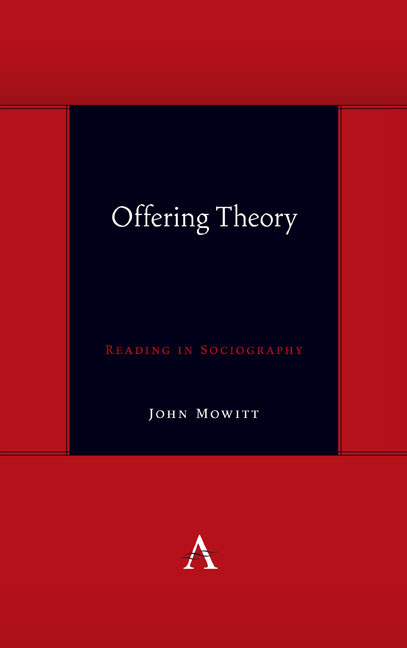Book contents
- Frontmatter
- Dedication
- Contents
- Acknowledgments
- The Pretext
- Introduction: Theory in Limbo
- 1 Queer Resistance: Foucault and the Unnamable
- 2 Stumbling on Analysis: Psychoanalysis and Everyday Life
- 3 Strangers in Analysis: Nationalism and the Talking Cure
- 4 “Jamming”
- 5 WWJD?
- 6 What Said Said
- 7 Apart from Theory
- 8 Conclusion: Theory Is Out There
- References
- Index
- Frontmatter
- Dedication
- Contents
- Acknowledgments
- The Pretext
- Introduction: Theory in Limbo
- 1 Queer Resistance: Foucault and the Unnamable
- 2 Stumbling on Analysis: Psychoanalysis and Everyday Life
- 3 Strangers in Analysis: Nationalism and the Talking Cure
- 4 “Jamming”
- 5 WWJD?
- 6 What Said Said
- 7 Apart from Theory
- 8 Conclusion: Theory Is Out There
- References
- Index
Summary
When in 1994, 30 years after its initial publication, MIT republished Marshall McLuhan's Understanding Media: The Extensions of Man (later reissued by Gingko Press), it was clear that, in a quasi- Lazarean gesture, the great Canadian thinker of media ontology was back. Setting aside the symptom of which this return gives expression, I wish here to point to the discussion in this text that might be taken, at least in the Western scholarly world, as the birth of cool. I am thinking here of the distinction drawn by McLuhan between hot and cool media. Crucial to this distinction is the problem of speed. Hot media are those whose messages (in a pre- semiotic sense as Eco and others objected) are consumed, as it were, in a flash. Cool media, by contrast, are ones whose messages take time. Although television is famously characterized as a hot medium, it is often overlooked that on his list of cool media McLuhan includes the academic ritual of the seminar. It takes time. Indeed, if you have offered one, you will know that its design is approached as if modeled on what Adorno called “structural listening,” that is, the notion that patient retrospective scanning is how knowledge- effects are to be generated. Even one’s introductory lecture, in flagrant violation of Hitchcock's dictum that one must never give away the beginning, does little more than establish the temporal parameters of this particular instance of “the long game.” Regardless of one’s ranking on RateMyProfessor.com, every seminar is thus cool, even, as Erving Goffman might stress, a cool “form of talk.”
If this chapter begins here it is because in it the Theory/ reading chiasmus is to be examined in relation to the medium of the graduate seminar, specifically Derrida's seminar on the encounter between Spinoza and Descartes, an encounter that, in Derrida's hands, makes much of the structural tension between a philosophical project that depended on its renunciation of teaching (about which more will be provided in due course) and one that argues, as if advancing a set of axioms about deconstructive philosophy as such, for the profound snarl of philosophical method and the work of educating. The force of such propositions will be elaborated in the pages that follow, but crucial to this exposition is McLuhan's prescient insight into, irrespective of its coolness, the legibility of the seminar as a text.
- Type
- Chapter
- Information
- Offering TheoryReading in Sociography, pp. 103 - 118Publisher: Anthem PressPrint publication year: 2020



